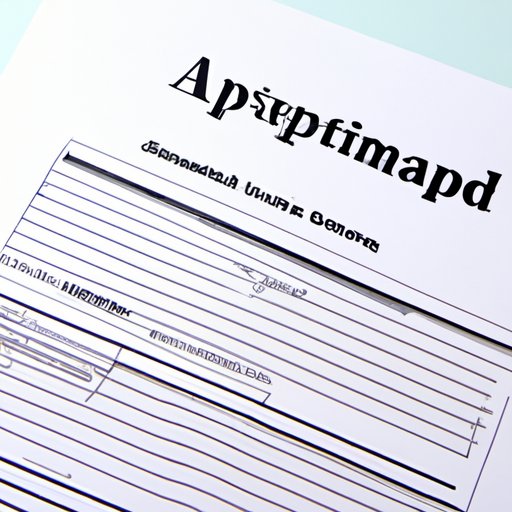Introduction
Being recognized as the next of kin for another person can be a complex process. In order to be officially recognized as a person’s next of kin, there are certain steps that must be taken. It is important to understand what constitutes being next of kin and what types of documents are required in order to prove it. This article will explore the various steps involved in proving that you are legally recognized as someone’s next of kin.

Definition of Next of Kin
The term “next of kin” is often used to describe a person’s closest family members. Generally speaking, next of kin includes the following: spouse, parents, children, siblings, grandparents, grandchildren, aunts, uncles, nieces, nephews, and first cousins. Depending on the situation, other individuals may be included as well.
Being recognized as someone’s next of kin is important because it grants certain rights and responsibilities. For example, a person’s next of kin typically has the authority to make medical decisions on their behalf. They may also be responsible for settling the deceased’s estate or making funeral arrangements.
Gather Legal Documentation
The first step in proving you are next of kin is to gather all relevant legal documentation. This includes any documents that show your relationship to the person in question, such as birth certificates, marriage licenses, and adoption papers. If applicable, you should also collect documents related to any prior marriages or divorces.
In addition to these documents, you should also collect any wills, trusts, or other estate planning documents that the person may have created. These documents can help prove your relationship to the person and establish who should receive their assets after death.
Types of Documents to Collect
When gathering legal documents, you should look for the following:
- Birth certificates: Birth certificates are the most important documents when it comes to establishing your relationship to the person in question. These documents list the names of the person’s parents, which is typically enough to prove you are related.
- Marriage licenses: Marriage licenses are necessary if you are trying to prove you are the spouse of the person in question. These documents list the names of both parties and the date of the marriage.
- Adoption papers: Adoption papers are necessary if you are trying to prove you are the adopted child of the person in question. These documents list the names of the adoptive parents and the date of the adoption.
- Divorce decrees: Divorce decrees are necessary if you are trying to prove you are the ex-spouse of the person in question. These documents list the names of both parties and the date of the divorce.
- Wills, trusts, and other estate planning documents: These documents can help prove your relationship to the person and establish who should receive their assets after death.
Where to Find Documents
Many of these documents can be found at local government offices, such as the county clerk or recorder’s office. You can also search online for public records, such as birth certificates and marriage licenses. If you are unable to find the documents you need, you may need to contact the individual’s attorney or other family members who may have access to them.
Seek Official Recognition
Once you have gathered all of the necessary documents, you should seek official recognition from the local and state government agencies. In order to do this, you will need to fill out forms and submit the necessary documents. Each agency will have its own set of requirements, so it is important to check with each one before proceeding.

Local and State Government Agencies
Depending on where you live, there may be different government agencies that you need to contact. Generally speaking, you should contact the following agencies:
- Department of Vital Records: This agency is responsible for issuing birth certificates, marriage licenses, and other important documents. You may need to contact this agency to obtain copies of these documents.
- Probate Court: Probate courts handle matters related to wills, trusts, and estates. You may need to contact this court to request information about the person’s estate.
- Social Security Administration: The Social Security Administration is responsible for issuing Social Security numbers and providing benefits to eligible individuals. You may need to contact this agency to verify the person’s identity and obtain information about their benefits.
Requirements for Official Recognition
Each government agency will have its own set of requirements for recognizing you as the next of kin. Generally speaking, they will require proof of your relationship to the person in question, such as birth certificates and marriage licenses. They may also require additional documents, such as a death certificate or a copy of the person’s will.
It is important to note that some government agencies may require notarized copies of certain documents. Be sure to check with each agency before submitting your documents.
Submit a Petition to Court
In some cases, you may need to submit a petition to court in order to be officially recognized as the next of kin. A petition is a formal request to the court asking them to grant you certain rights or privileges. In this case, you would be asking the court to recognize you as the next of kin.
What is a Petition?
A petition is a written document that outlines your request to the court. It should include an explanation of why you believe you should be recognized as the next of kin, as well as any supporting evidence. The petition should also list the specific rights or privileges that you are requesting.

How to File a Petition
Filing a petition is a complicated process, so it is best to work with an attorney who specializes in family law or probate. Your attorney can help you draft the petition and file it with the appropriate court. Once the petition is filed, the court will review it and make a decision.
Provide Testimonials
In addition to legal documents, you may also need to provide written testimonials from people who can attest to your relationship with the person in question. These testimonials should include details about how long you have known the person, how you are related, and why you believe you should be recognized as the next of kin.
Who to Ask for Written Testimonials
When looking for written testimonials, you should ask family members, friends, and colleagues who can attest to your relationship with the person in question. It is important to choose people who can speak to your character and provide detailed information about your relationship.
What Information is Needed in Testimonials
Written testimonials should include the following information:
- Name of the person who is writing the testimonial
- How long they have known you and the person in question
- How you are related to the person in question
- Why they believe you should be recognized as the next of kin

Obtain a Letter of Administration
In some cases, you may need to obtain a Letter of Administration in order to prove that you are the next of kin. A Letter of Administration is a legal document issued by a court that recognizes you as the legal representative of the person in question.
What is a Letter of Administration?
A Letter of Administration is a legal document issued by a court that recognizes you as the legal representative of the person in question. This document grants you the authority to manage the person’s estate, including making decisions about their assets, debts, and other matters.
How to Apply for a Letter of Administration
In order to apply for a Letter of Administration, you will need to complete an application and submit it to the appropriate court. You will also need to provide proof of your relationship to the person in question, such as birth certificates, marriage licenses, and adoption papers.
Once the court reviews your application, they will issue a Letter of Administration if they believe you are the rightful next of kin. This document will serve as proof that you are legally recognized as the next of kin.
Conclusion
Proving that you are next of kin can be a complex process. However, by gathering the necessary legal documents, seeking official recognition from local and state government agencies, submitting a petition to court, providing written testimonials, and obtaining a Letter of Administration, you can prove that you are the rightful next of kin. Being legally recognized as the next of kin can provide many benefits, such as having the authority to make medical decisions on behalf of the person in question or settling their estate.
(Note: Is this article not meeting your expectations? Do you have knowledge or insights to share? Unlock new opportunities and expand your reach by joining our authors team. Click Registration to join us and share your expertise with our readers.)
